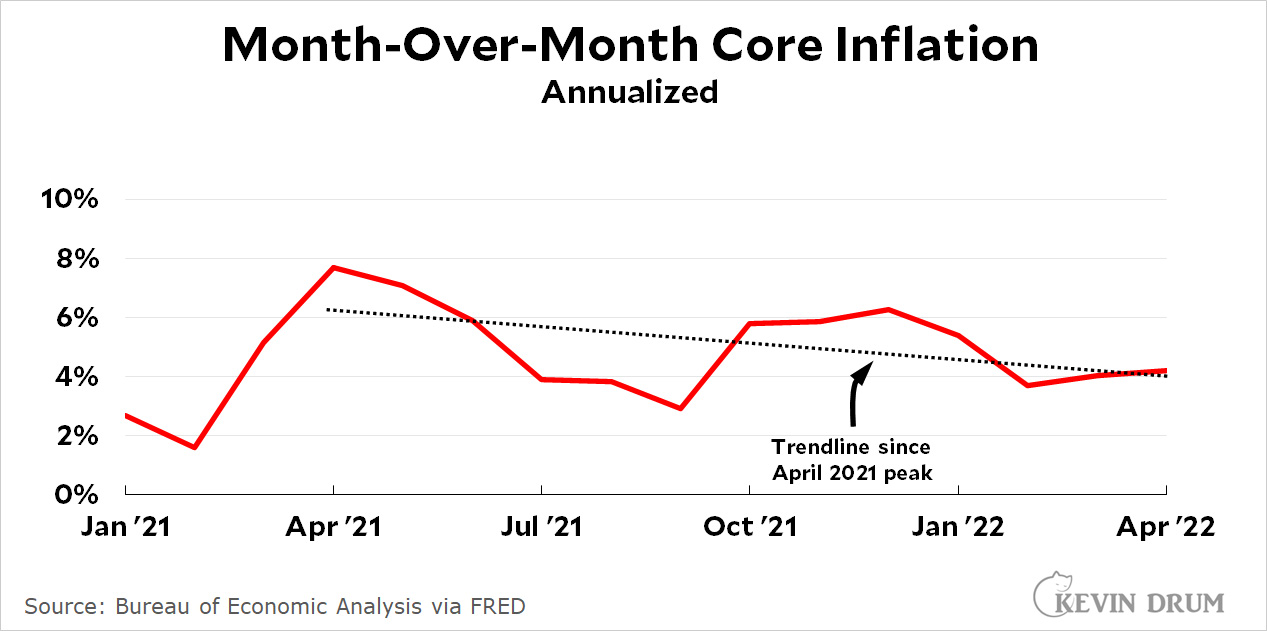Here's an excerpt from a Vox piece about the upcoming congressional hearings on the January 6 insurrection. It's typical of dozens of others I've read:
The committee is going to great lengths to make the primetime presentation compelling , including bringing in former ABC News president James Goldston as a consultant.
They will gather Thursday in the Cannon Caucus Room, an ornately decorated space that is rarely used for hearings. Using live witnesses as well as video, images and other documents, it will represent an opening argument by the January 6 Committee, as it shares the fruits of over 1,000 depositions and interviews it has conducted and 140,000 documents that it has gathered since it was established by House Speaker Nancy Pelosi last summer.
The impact of these hearings is reduced because Democrats are all but bragging that they're basically a scripted show, not real hearings. Compare this to the current Republican campaign to shame the media for not giving more attention to the guy who approached Justice Brett Kavanaugh's house this morning and later called police to turn himself in for thinking about killing Kavanaugh. There's never even a hint of acknowledgment that Republicans are following each other's lead to put on a show. They play it straight, as if their outrage over media priorities were entirely genuine.
Democrats could really learn a lesson from this.







